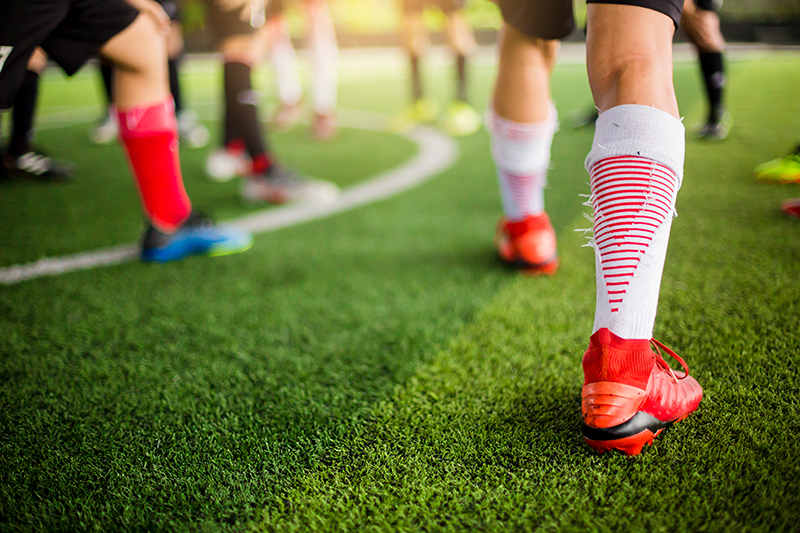Pediatric orthopedic surgery is performed to treat a variety of conditions, deformities, or injuries such as scoliosis, hip dysplasia, fractures, and ACL tears. Even minimally-invasive techniques can require pain management after orthopedic surgery, which we talk about in this article.
What Causes Pain After Surgery?
Parents often ask us what causes pain after surgery. The simple answer is that post-surgical pain stems from the cutting of tissues and nerves, which activates the body’s automatic injury responses.
The longer answer is that when tissue is damaged in any way from trauma or surgery, the body releases chemicals (neurotransmitters) that produce a stimulus to the brain in the form of pain. The brain springs into action to coordinate a response; its goal is to protect the injured area. The brain may send a signal to release endorphins which are natural painkillers, or it may transmit orders to the adrenal glands to stimulate an immune system response to an injury or surgery.
Pain after surgery may result in high blood pressure (hypotension), inflammation, or muscle spasms as the body responds to this stimulus.
At TPOC, our orthopedic surgeons are trained to minimize trauma to the tissue. We also understand the importance and value of having the anesthesiologist administer pain medications BEFORE surgery. Doing so prevents the onset of pain after surgery altogether or dramatically minimizes post-surgical pain. This fosters a quicker recovery from all kinds of orthopedic surgeries. It also alleviates common conditions after surgery such as constipation, urinary tract infections, and swelling in the joints.
How Long Does Pain Last After Surgery?
How long pain lasts after surgery is subjective. It depends on how extensive the surgery is and the amount of tissue manipulated. Short-term pain after surgery can last 24 to 48 hours; in larger procedures, such as setting a bone surgically, your child will likely be uncomfortable for several days.
What Are The Most Common Forms Of Pain Management?
Pain management depends on the severity and location of the pain and surgical site. The most common forms of pain management for pediatric orthopedic patients vary. Some pain management methods are easy to do yourself at home, while others require a physician’s attention.
One easy and fun pain management technique we recommend to parents is to engage their child in pleasant distractions. Watching TV, playing a game, talking, or reading takes your child’s focus off the pain for a while and really helps! Other common pain management measures are:
· Compression bandage around the surgical site
· Frequent icing of the area to reduce swelling
· Elevation of the limb, which also allows for necessary, therapeutic stretching of the healing tissue while minimizing pain
· Exercises that improve a joint’s range of motion
· A nerve block administered by an anesthesiologist may be needed to prevent a pain response or alleviate severe pain temporarily
· Over-the-counter pain relievers or medications prescribed by your pediatric orthopedist
When To See A Pediatric Orthopedist?
If your child has a musculoskeletal condition or injury, your child should see a pediatric orthopedist for a full evaluation and treatment plan. That treatment plan may include orthopedic surgery in the case of complex fractures, torn tendons or ligaments, or to correct congenital problems.
At The Pediatric Orthopedic Center, we understand that treating your child’s injury or condition surgically means not only helping them regain and improve function but also managing their pain—before and after surgery.
Our pediatric orthopedists are trained to detect when your child is in pain, even if he or she is too young to express it. We also explain what to expect before and after surgery in a kid-friendly way to ease the stress. Our young patients have exceptional recovery results because of our proactive approach that focuses on minimizing pain after surgery and the way our team communicates with children.
If your child needs an orthopedic evaluation or pediatric orthopedic treatment—including surgery—we invite you to set up an appointment to see an NJ pediatric orthopedist in one of our four northern New Jersey offices, in Springfield, Cedar Knolls, Jersey City, & Wayne!




